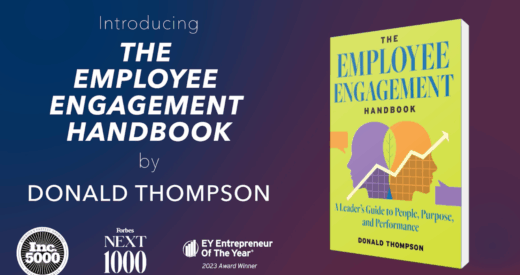When facing a big decision, how many of us have been told to “go with your gut”? The power of instinctual thought is lauded in leadership biographies and articles touting “the split-second decision that changed my life.” But what if those stories hold power because their favorable outcomes were unusual? Instinct is fine when deciding what car to buy. However, for decisions that truly matter, self-awareness is a better barometer than the churning of your insides.
Self-aware individuals understand all the ways they are influenced by hidden biases, assumptions, and expectations. They recognize their strengths and weaknesses, the gaps in their knowledge, and when they need better data to make the right choice. And, while self-aware executives may rely on the occasional quick decision, those choices will be grounded in data, derived from a deep understanding of their personal motivations, diverse stakeholder viewpoints, and a keen knowledge of the business environment.
It’s not surprising that researchers found that self-awareness was the strongest predictor of overall success for leaders, accounting for 30% of the variation in leadership effectiveness. People who see themselves with clarity and understand their impact on others are better leaders and even happier human beings, as well.

Unconscious Bias and Other Obstacles to Self-Awareness
However, achieving and maintaining self-awareness can be challenging, and it gets harder as executives advance professionally. Research published in the Harvard Business Review reveals that many leaders claim to possess self-awareness, yet only a small fraction of people — around 10 to 15 percent — actually embody this trait.
Experience can make leaders less apt to question their assumptions, less open to conflicting points of view, and more likely to rely on their existing knowledge. As leaders gain personal power, they are also more likely to become overconfident in their own abilities.
Unconscious bias is another barrier to self-awareness. All people have biases, which can lead to categorizations, assumptions, and comparisons that reinforce our preconceived notions. But when leaders fail to confront and address bias, the consequences can be disastrous: judgment errors, skewed decision-making, and closed feedback loops. At the managerial level, biases and favoritism can erode team cohesion, lead to poor personnel decisions, and cause time and resources to be wasted on the wrong projects.
Commit to Self-Awareness and Embrace Intentional Growth
There are two aspects of authentic self-awareness: having an objective view of yourself and a deep understanding of how others perceive you. To nurture both internal and external self-awareness, executives must commit to continuous learning through self-reflection, regular feedback from trusted advisers, and objective assessments.
“Ongoing evaluation is critical in growing as a leader, particularly as we build self-awareness, a key skill in making well-informed decisions, developing cohesive teams, and addressing the influence of hidden biases,” explains Jackie Ferguson, VP of Content & Programming at The Diversity Movement and host of the “Diversity: Beyond the Checkbox” podcast.
An inclusive leader who values self-awareness benefits from a range of sources, ranging from family and friends to colleagues, coaches, and mentors. Self-aware leaders harness the power of their supportive network, which then provides valuable guidance, development opportunities, and emotional support.
High-performing executives also assemble diverse teams, consisting of individuals with a wide variety of perspectives, backgrounds, and lived experiences. Self-awareness is a key trait for inclusive leaders, allowing them to leverage diversity, equity, and inclusion (DEI) best practices to create psychologically safe environments where creativity and innovation can flourish.
Bridgett “BT” Tabor, the Diversity, Equity and Inclusion Senior Manager at BAYADA Home Health Care, is responsible for executing DEI initiatives and leading cross-functional working groups that promote employee engagement and retention. As someone who is constantly challenging themselves to achieve personal and professional excellence, Tabor has a clear-eyed view of her strengths and challenges.
“Self-awareness has been an invaluable asset in my DEI journey. It has significantly enhanced my decision-making abilities and provided me with a broader perspective,” she says. “While it can be tempting to approach situations with biases based on my own diversity identifiers, I consistently strive to avoid such tendencies. I believe in considering multiple angles and understanding the potential impacts on the business or the group I am advocating for.”

Self-reflection helps leaders understand their core values, motivations, triggers, and emotions. Objective assessments help identify strengths, weaknesses, and paths to improvement. However self-knowledge has to be linked with an understanding of how a person’s words and actions are interpreted by others. Self-aware leaders recognize how they come across to others and anticipate potential outcomes.
Through internal and external self-awareness, highly effective leaders can operate with authenticity, empathy, and adaptability. This effort nurtures a culture where teams operate at peak efficiency and work collaboratively, thereby fostering personal and organizational growth.
Master These 4 Skills to be a More Self-Aware Leader
To foster a culture of excellence, it’s vital to create safe spaces for free-flowing dialogue, consider other perspectives, understand other people’s priorities, and give and receive feedback. These pivotal skills will elevate your leadership to new heights and set an inspiring example for others to follow.
1) Consider perspectives other than your own
Cultivate empathy by considering reasons why someone might hold a different viewpoint. Challenge yourself to empathize with them and understand their underlying motivations or experiences. Learning about other cultures and other worldviews also helps self-aware leaders meet the demands of a rapidly changing and increasingly global business landscape.
2) Promote safe spaces for open dialogue
Create an environment where free-flowing discussion is encouraged, and team members feel safe sharing their perspectives and concerns. Actively listen to feedback, demonstrate willingness to consider other viewpoints, and foster a culture of mutual respect and inclusivity.
3) Understand others’ needs and motivations
A leader who is self-aware will possess a heightened awareness of the needs, wants, and motivations of others. Pay attention to cues that might not be immediately obvious, such as their level of engagement, anxiety, or confidence. This awareness allows you to tailor your interactions and support to better meet their individual needs. Develop the habit of holding back your immediate response when interacting with others. Instead, take a moment to consider various responses and their potential consequences. This pause allows you to demonstrate an awareness of the needs and feelings of others, leading to more thoughtful and constructive interactions.
4) Ask for frequent evaluations and regular feedback
No one can achieve their full potential if they don’t know what’s working, what’s not, and what they might do differently. Self-aware individuals actively seek opportunities to improve and eagerly embrace both compliments and criticism. Inclusive leaders harness the power of a supportive network, including family, friends, mentors, colleagues, and coaches. Honest critiques from these trusted advisers will allow you to monitor your performance and understand how your behavior is interpreted by others.
“Tapping into your network to gain added outside perspective is an important step in developing as an inclusive leader,” says Ferguson, a national thought-leader on inclusive language and leadership who was named an Inc. Female Founder honoree, the women leaders across America who are “shaping the world into a better place.”
Executives who see themselves with clarity and understand their impact on others have the power to supercharge their own performance, as well as that of their team. As a foundational inclusive leadership capability, self-awareness sets the stage for continuous growth; meaningful collaboration; and highly productive, empathetic relationships. By actively seeking a variety of perspectives, creating psychologically safe workplaces, understanding others’ needs and motivations, and cultivating a culture of feedback, you can become a more inclusive, effective leader and propel your organization toward lasting success.
Join the ranks of forward-thinking organizations that are harnessing the power of inclusive leadership to build stronger executive and managerial teams. Contact us today to learn how TDM LeaderView can transform your team and allow your organization to thrive.
Jamie Rose Ousterout, CDE, is Chief Experience Officer at The Diversity Movement and an expert in operational strategy, having spent more than a decade in creative, marketing, and digital companies, serving local, regional, and international clients. Connect with her on Linkedin.




